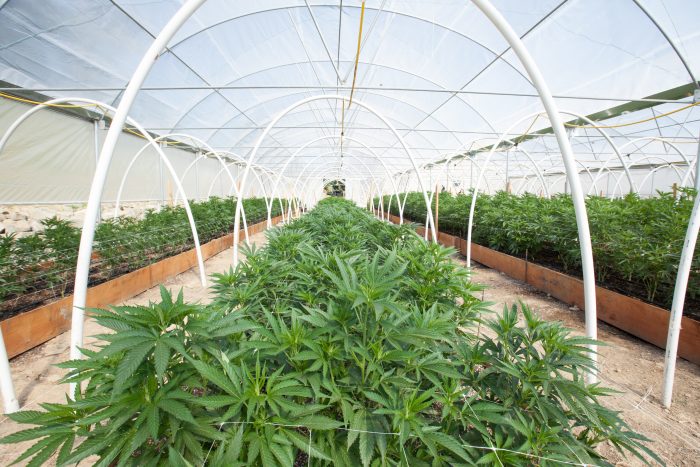Cannabis & Hemp License Info
Information will be updated here as it becomes available.
Check back soon for updates!
Please note; while we aim to keep this page fully up-to-date with the latest information, hemp and cannabis laws are always changing. We encourage you to verify these rules and regulations in the official legal text, which we’ve linked throughout the page for your convenience.
Virginia Industrial Hemp Program Regulations
Changing or adding a production field, dealership, or process site
To change or add a production field, dealership, or process site to your registration, complete the “Industrial Hemp Registration Change Form.” There is no fee for this change. You may not grow, deal, or process hemp at a new location until you have received a revised registration.
Email the completed form to Jasmine.Harwell@vdacs.virginia.gov or mail the completed form to:
Jasmine Harwell VDACS/OPPR
P.O. Box 1163
Richmond, VA 23218
Agent
The Virginia Industrial Hemp Law provides that it is lawful for a grower or his agent to grow, a dealer or his agent to deal, or a processor or his agent to process industrial hemp in the Commonwealth for any lawful purpose and that no grower or his agent, dealer or his agent, or processor or his agent shall be prosecuted under Va. Code § 18.2-247, 18.2-248, 18.2-248.01, 18.2-248.1, 18.2-250, or 18.2-250.1 for the possession, growing, dealing, or processing of industrial hemp.
The Virginia Industrial Hemp Law does not define “agent.” You may wish to seek legal advice regarding defining who is your agent.
Although not required, you may wish to provide the “Agent Documentation” form to each person whom you intend to act as your agent for the limited purpose of growing, dealing, or processing industrial hemp pursuant to the Virginia Industrial Hemp Law. You do not need to submit this documentation to VDACS, nor do you need to advise VDACS of any changes to the individuals you deem to be your agents.
Obtaining planting seed or clones
VDACS will not provide you with hemp planting seed or clones.
If you are purchasing hemp planting seed or clones from within Virginia, you must purchase from a Registered Grower or Processor.
If you elect to obtain hemp planting seed or clones from another state or country, doing so does not jeopardize your Industrial Hemp Grower Registration issued by VDACS. You may wish to ask your seed or clone supplier for documentation of the THC test results for any hemp variety you are planning to purchase.
Planting report
If you are a Registered Industrial Hemp Grower, you must submit a planting report to VDACS within 14 calendar days of planting seeds, clones, or cuttings. If you plant multiple times throughout the growing season, you will need to submit multiple planting reports. Please use the planting report template provided by VDACS on its website labeled “Industrial Hemp Planting and Propagation Report.”
If you do not plant industrial hemp on a production field stated on your registration, you must complete Section 2-A of the “Industrial Hemp Planting and Propagation Report” and submit the report to VDACS by July 31, 2019.
THC testing
Section 3.2-4114.2 of the Industrial Hemp Law authorizes VDACS to conduct random THC testing; however, VDACS does not require pre-harvest testing. If VDACS selects your industrial hemp to sample and test, you will not be required to pay a laboratory testing fee. If VDACS selects your industrial hemp to sample and test, a VDACS inspector will contact you to schedule an inspection. Once a VDACS inspector contacts you to schedule an inspection, please do not harvest your industrial hemp until the inspector has completed the sampling.
If the Cannabis sativa sample collected from your production field, dealership, or process site has a THC concentration of more than 0.3 percent on a dry weight basis, the Commissioner will, pursuant to Va. Code § 3.2-4114.2, require you to destroy the Cannabis sativa at your cost in a manner approved of and verified by the Commissioner. Additionally, the Commissioner may, pursuant to Va. Code § 3.2-4114.2, advise the Superintendent of State Police or the chief lawenforcement officer of the appropriate county or city when a grower grows, a dealer deals, or a processor processes any Cannabis sativa with a THC concentration of more than 0.3 percent.
Commercial Sale
Your hemp product and sale thereof must comply with any relevant federal or state law (i.e. food laws, animal feed laws).
The following industrial hemp plant parts or hemp products can be sold to anyone in Virginia (the purchaser is not required to have a Virginia Industrial Hemp Grower, Dealer, or Processor Registration):
- Mature stalks
- Fiber produced from mature stalks
- Seed oil or seed cake
- Any compound, manufacture, salt, derivative, mixture, or preparation of the mature stalk, fiber, oil, or cake
- Sterilized seed that is incapable of germination
- Hemp-derived extract, including hemp-derived CBD oil
The following industrial hemp plant parts can be sold in Virginia only to an individual who has a Virginia Industrial Hemp Grower, Dealer, or Processor Registration:
- Planting seeds or clones
- Flowers or buds
- Leaf material/micro greens
Nationwide, law enforcement has had varying responses to the transfer of hemp planting seeds or clones, flowers or buds, or leaf material or micro greens across state lines. If you would like to transfer or sell any of these materials to someone in another state, VDACS encourages you to seek legal advice. However, doing so does not jeopardize your Industrial Hemp Grower, Dealer, or Processor Registration issued by VDACS.
Request a DemoVirginia Industrial Hemp Seed-to-Sale Traceability Info
The Virginia Industrial Hemp Program is operated by the Virginia Department of Agriculture and Consumer Services (VDACS).
All of this information, as well as the full written rules and regulations released by the Virginia Department of Agriculture and Consumer Services, can be found here.
Virginia Medical Cannabis Program Updates
April 13, 2020 – Gov. Ralph Northam approved a number of bills including Senate Bill 2 and House Bill 972 that will decriminalize marijuana possession offenses. He also suggested technical amendments which must be approved by the legislature before taking effect on July 1, 2020. Gov. Northam also approved Senate Bill 1015 to protect patients against prosecution for participating in the state’s medical cannabis program and Senate Bill 976 to expand and improve the state’s medical program, adding a new license for cannabis dispensing facilities.
July 1, 2019 – Three medical marijuana bills signed in March 2018 by Virginia Governor Ralph Northam went into effect. Each bill expands Virginia’s medical marijuana program. One bill allows school healthcare providers to administer medical marijuana oil to registered patients while at school.
Another bill, known as the “Let Doctors Decide” bill, will allow Virginia doctors to recommend medical marijuana oil for any diagnosed condition or disease. The last bill allows “registered agents” to receive medical marijuana oil on behalf of a patient, often referred to as a “caregiver” in other states.
March 9, 2018 – Virginia Governor signed House Bill 1251 into law to expand the state’s current medical marijuana program and allow the use of cannabidiol (CBD) or THC-A oil for the treatment of any diagnosed condition or disease determined by a practitioner, instead of limiting the qualifying conditions to only intractable epilepsy. The law went into effect on July 1, 2019. Patients may enroll in the program with the state Board of Pharmacy with their physician’s authorization.
March 16, 2017 – Virginia Gov. Terry McAuliffe passed a law that allowed patients suffering from intractable epilepsy access to cannabidiol (CBD) or THC-A oil. These oils have been shown to reduce the frequency and severity of seizures.






